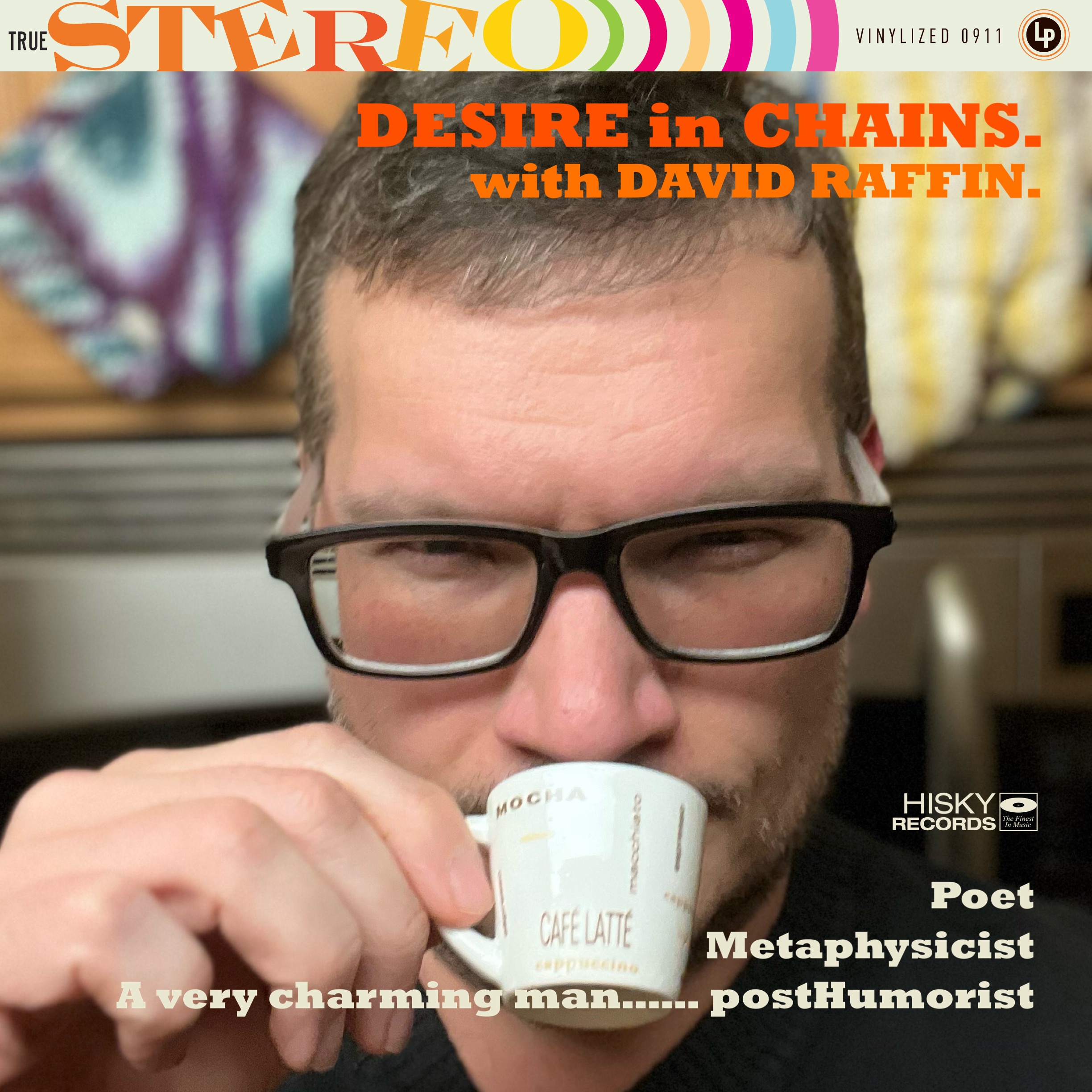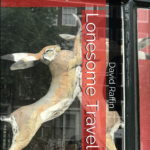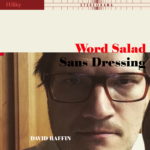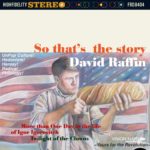I was a member of the street party but now I am a member of the house party. We are going to have a Civil War. Between the halfs and the half Nots. Who can bring us back together from these times of radical severance?
Now we are all members of the street party. It is quite a racket. Tennis, anyone?
It falls on me to remind all of you that cheese danish is a derogatory term. And don’t make me laugh. It’s too soon.
Politicians love prisons so much they insist even college students have to pay their debt to society. To pay for more prisons. Everyone in the street party is in lockstep.
Cloud technology put me in the fog.
Cloud technology put you in the fog.
I own a home in the URLs. A commercial property. If you know the password.
Come the end of winter one should remove any systemic chains left over from the cold.
Please differentiate hanging up the towel from throwing in the towel. Is it wrong to just toss the towel off? Rub or pat? Dry humor?
Children lose arms because of data mining.
They used to say war is good for the economy but they’ve worked on The problem and fixed it. Good.
David Raffin
One goose Mongoose
The duck billed the platypus three dollars and forty-seven cents.
“Cents? cents? Don’t make no sense,” said the irate duck billed platypus, waiving the bill in the air.
“You say it ain’t fair?” said the duck.
“I say it ain’t square!” said the platypus.
It was quite a confrontation hanging in the air.
Now, the duck billed platypus, he was no fool. He had done and gone to finishing school. He knew what was what, and the meaning of is, he was not new to this turnip truck biz.
“If you don’t like it,” said the duck to his prey, “why don’t you just up and fly away?”
“Mayhaps I will,” said the platypus. “Mayhaps I will.”
Because the duck billed platypus had finally had his fill. Of the duck and his quack, of the thumb and it’s tack, and he was not prepared to say when he would be back.
“Now see here,” said the duck, but the platypus didn’t hear quack. He had flown to New Zealand, Jack.
The Duck double billed the platypus over a plate of flapjacks. It was a society flap. The stoolpigeons saw to that.
A man came into a bar. It was dark inside because the proprietor had failed to pay the bill. Coincidentally, the proprietor was a duck. The bar was called “the duck billed platypus“ which was often a point of confusion. But what’s in a name, anyway?” the proprietor quacked. Just a moniker. Quoth the Raven, “nevermore!”
“No one asked you,“ said the duck.
Then the raven lobbed a projectile toward the duck. Who failed to duck. And was thusly taken out in an untimely manner.
The projectile was a cuckoo clock which had stopped.
Even though it had stopped it made quite an impact upon the duck, effecting the disposition of the bill.
Even a stopped clock is right twice a day regardless of the impact upon the bill.
Hospitality isn’t all it’s quacked up to be.
Remember to duck when the time comes because time flies.
Wherever one can find a goose one can find two ducks.
“Just got out of the chuckle hutch,” said the duck. “What did I miss?”
“10 whistles are made of 10,” said the duckbilled platypus, still angry about the sum. No quantitative easing. For sneezing.
Quacks, said the duck.
Quacks, said the duckbilled platypus.
“Don’t make me laugh,” said the duck. “It’s too soon.”
After we seize the means of production we’ll set all those duck statuettes free. No more to be lined up in neat little rows, no more ducks placed in order wading on duck row. All the duck statuettes fly away home, wherever those good eggs may nest. On the corner of wild and sycamore street, or a mantle if that’s what the duck thinks best.
And so I asked the mathematician how to slice a pie. And she said she wasn’t into division. Then our pies did multiply. At this point we were up to our ears in pie. And we were in arrears on pie. And that’s a sweet conundrum no matter how you slice it. We ducked out on the bill.
Today avocados are toast
Using star ratings to rate stars is like using emojis of an avacado to rate avocados. I rate this avacado three and a half avocados.
Flip it. I rate this star four avacados. I rate this avocado two stars.
It’s apples and oranges.

Couple of years ago avocado toast was a hot commodity. But this year it’s going to be toast. Because minimalism.
A cartoon I don’t like is cinnamon toast crunch kids. Because of the terrible squeaky little kid voices the mini cinnamon toast crunch squares speak in when they are about to be masticated. But the ASMR really turn some people on. Because something to do with frequencies. Yum.
It is a shame about the chocolate donut mascot. We are losing our cartoon mascot history.
I do not mean to imply that the founder of general post sugary cereals Warren G Friendly was not a complete amoral monster who does not deserve to be remembered. This is a children’s sugar cereal. And we have to let some things slide for the sweet love of freedom to crunch by gum.
Dentists are taking candy from babies. The law is applied unevenly.
Chocolatiers are heroes no matter how many children disappear into their factories. As workers or what have you.
If we did not use children as workers how could we clear the tubes to drain the candy swamp? Did you ever think about that?
No, you don’t think.
Keep it down the ASMR people are listening.
Be respectful.
It is only by pushing candy to the extreme that we can enrich the Candyman and sweet nectar will trickle down from on high nourishing those who toil. With sugar rushes. Sugar burns. Mbop.
Avocado toast candy. For the masses.
They got you coming and going
And the dawn was of television. In the beginning with static. For all was artificial. A window upon the world. Reimagined. For into your own home now came horses. And train stations. The clanging of bells.
And thus the broadcast day did begin. And the people said. We cannot afford that. And they looked up upon it. Up. Through the store windows. At the Chevy show. The modern showroom. Where a man dressed as a woman. For a gag. And the people did. Rejoice.
For he was everyone’s uncle. For even at that time the people did know. They were in every family. And the people saved their pennies. So they could look up upon it. Yay. And it was the beginning of a new commercialism. Lifestyles. Of the rich. And famous.
And the people said broaden this menu. For we desire entertainment. In the luxury of our own homes. For the pleasure in this country. Is self. And the programming did diversify. But not much. For the people wanted what they saw to look like them. But somehow it never did.
For they were held back by the family hour. And broadcast decency. And standards. Which were set in dark rooms. And controlled by powerful monied interests. Who ruled the community airwaves. For the people. Buy the people. And they gave it to the people. And did they.
And they said give us cowboy shows. An artificial past. And give us family shows. With children. And perhaps a dog. And that is the limit. Except for church music. On Sundays. A form of sports programming. And people did watch. For they had little choice. In such matters.
And so it was the dawning of Camelot came. For because of Dick sweat, the president of the United States became the head of a dynasty. Which would one day act to bring back viral pestilence upon the land. But today. They called it. Camelot. For now the Americans finally had their king. what fools.
And the people were happy. And the programming became gay. The airwaves filled with fantasy. Witches. Djinn. Martians. Hillbillies. And the rest. Anything. To not address inequality or Vietnam. Racism. Or the blacklist. Which besmirched the reputation of LBJ and his entire Democratic Party. Doggone it.
And then the people arose and sang great protest songs. Such as puff. The magic dragon. Which had little to no effect upon the leaders of the country. Who were heavily involved. Yay. In the military industrial complex. A Ponzi scheme. A Freudian concept. Like the Id. Or super ego. It is situated mostly in the mind.  And it is hard to change someone’s mind when they are being paid to never consider the matter. Which is deemed inappropriate. At this. And all times. For matters of safety. And hygiene. And the greater wealth of the body politic which is mostly held by its hedge fund managers.
And when military involvement collapsed upon itself creating many casualties at home and abroad then at last the people said. At least we always do the right thing in the end. And then began the me generation. And greed became. Good.
And Ronald the clown did arise. And he said get the government off my back. And he meant it. For his stated goal was to make the government so small it could be drowned in a small tub of (privatized) water. And the people said. Thou art a great communicator.
And when he died even the other side said. Lol he was a great communicator. But we have our own. In hopeless Bill. He came. And he came. And he came. From humble beginnings. And he came. And he came. And he came. Until he came to the White House. Where he also came.
And yay. It was around this time there was no more fairness doctrine. And while the channels did multiply the owners did shrink. To next to nothing. For there can in the end only be one. As said the profit. Marx.
And the people said. Productivity abounds. But we are starving. And the leaders said. Are there not snack cakes plentiful in this land? And the people said we cannot afford them. We cannot afford the product of our own labor. And the politicians laughed. They said thee must get a second job. Budget. Abstain from luxury such as food and warmth. For this is called austerity. And it is good. For the people. For do as we say and not as we do is sacred among the owning classes.
And the people said we are tired of you false prophets. You are a blight upon this land. Corrupt. We cry out the ancient cry. Corruption! Take thee heed.
And the politicians did laugh. For they said that people had no choice but to support either their one or their other. No choice. For if not the one they would get the other, and vice versa. World without end.
So then the people said we will have the buffoon then. Bring on the buffoon. And the owner and managerial classes said no you will not take the buffoon. And the people said yes. We will have the buffoon.
And the buffoon did wreak havoc. As the buffoon does. For that is the purpose of the buffoon. A terrible thing. A curse.
And the false prophets. Cried. For they were. Without words. At last. And they said do thee sinners not repent? And take us back no questions asked. No changes made.
And the people said have thee come down from thine own high horses?
And the answer was clearly nay. Nay.
Hard times grade 8
Something was up.
In class. Civil war week. There was a sub and that meant days of watching civil war movies on a television wheeled into class. A few minutes of fine tuning and then the lights go out. We sit together in the darkened room as brother fights brother. The smell of bubble gum. The pop of the muskets. A kid suddenly farted and other than that silence. I mean, He launched up out of his seat. Hovered. Landed. Quiet. Laika or not.
First animal in space,
Gory Gory Hallelujah.
Frank had the mother of all boners.
And that was a problem.
There was just something about her, the girl one row over and one up. Don’t judge, something anatomical. Frank couldn’t put his finger on it. This thing he felt. It was ineffable.
He felt like an ass.
Don’t we all.
And at the end of the class the grades for the semester were posted to the back wall. And he had to go look at them I guess. And he was stiff as a board. And kids were milling around. Hereto-therefore. And he was making deals with the devil which always have un-intended consequences. Trying to get things down. In control. He thought about brother fighting brother in a war to free Jefferson’s slaves and the smell of gunpowder and violent death, and Simon says, and nothing worked. The flesh is stronger than the will sometimes.
Thrice daily or more.
So he put his book in front of his pants, as Simon had done years before, and made his way to the back of the room. Casual. And he got his grade. And this kid named Chance, a jock, he sides in and says, in a loud whisper, “Hard times, bud?” And three or four people nearest sniggered away.
These were hard times.
Today’s Standards Beget Practices
The club with no name met in the computer room which was filled with computers but empty of people. Technically, it had started as a computer club but if we are to be completely honest, looking back upon it, these were nothing but plastic machines which made beeping noises when you fed them. There were some blinking lights with blocky graphics and if you were of an imaginative sort it was possible you could convince yourself you were looking at a dog or a cow or a camel. And that is only if you laboriously typed out, with nary a mistake, sister, a program in binary code which you copied from a magazine and called the results your own, which is how technology works.
You save it on disk, of course. You aren’t crazy. All that work. And you pass it on. Because that’s the friendly thing to do. So you copy it. And you give it out. And the recipient copies it and gives it out. And then everybody has a copy. And it’s all the same copy. It’s a little bit of you in their pocket. A seed. But of course you had nothing to do with it. Nothing but time. Which is the lingua franca of the economic system. If I may speak the queen’s French. And yet you give it out for free. Thumbing your nose at the very system which gave it to you. Boy did they ever. But they didn’t give it to you. You earned it. Though you paid nothing. And you are just passing it on. Giving back better what you got.
“This game is user mendacious,”
Simon said as he passed the warm disk to Frank. “It is openly hostile to the players. It is a natural innovation. But the results remain to be seen.” His glasses slid to the left. “If you hit reset you lose everything. Poof.”
Insert the disk.
“Christopher Rages Through the Desert…”
That was the problem with technology, which was still, in its infancy. It was text based. No graphics. You interfaced with your mind. Alone.
It was a MindF*ck. Classic.
In the camera club they flirted with old technology. Because that was all you could do with it. Anymore. It was just lucky to get any attention. And so they were learning photography the old way. On rolls of film. They had to unwind in a dark room. So they had to learn to do it blindfolded. They weren’t really blindfolded. They were in a dark room. With a roll of film. In the dark room proper there was a red light so you could actually see. But in the little auxiliary room where you actually handled the raw and unexposed film with your bare hands, that room was pitch black. For fear of exposure.
You’d lose everything.
It was also where an artiste could be alone for a few minutes in the schooldays without fear of interruption sullying any task at hand.
I mean, this was weeks after Frank lay awake in his bed all night the night before his first day of high school. Which had been no big deal. The day itself had not required his full energy or attention. It was mostly the same people in a new place.
A reboot.
Kevin was in the class with Frank but he was not his partner the day they made the box cameras. Which was a stupid thing to call them, people always call things stupid names. Most cameras were boxes. They were trying to set up some box hierarchy. A class division. A distinction. No, these were pinhole cameras. Cardboard contraptions with photo paper taped inside opposite a hole poked in the box with a pin. With a finger over the hole till it’s ready. Frame the photo. Move the finger. And then time does the work for you if you can wait it out. Ghostly images burned into the paper, then set for life.
Frank did this project in the parking lot with a Senior named Skip. He was a cool guy. Not because he was a senior, though it was cool he didn’t throw that in a guy’s face, but mostly because he had a car. As you can see in the photo.
Plain as day.
Through the peep hole.
But he ghosted. Never saw him again.
Let me ask you a question. It was the beginning of the year. About, no, less than a week in. So all the seniors were really just juniors or they had been three months before or even, maybe, hell, last week. Depending on where you draw the line. And it’s not up to me to decide where that line is drawn. Oh, I am not an artist. But I do know something about hierarchies. WHERE WE STAND.
Vince was also in this class. That boy (?) was an artist. He could draw doodles like nobody’s business. They sat around in the class reading National Lampoon magazine. Vince had an older brother who subscribed. It was the only magazine that had nudity in it (sometimes) which was not marketed strictly as ADULTS ONLY. Rather, it passed as a joke. There was a guy at the flea market every Saturday at the fairgrounds who re-homed old magazines. Making most of his money selling used Playboys to teenaged boys who frequented, after browsing the bins of cut rate records. Most corners cut. Clean.
Solid Gold gone.
Downbeat Bubble Gum Pop.
As the man on the other side sold paperbacks with the front covers ripped off. Many of the books said:
IF THIS BOOK IS SOLD
WITHOUT A COVER
IT IS STOLEN!
Certainly un-protected.
He had no National Lampoon. He would only sell the kids PLAYBOY and not HUSTLER or SCREW or GALLERY, which was where the Girls Next Door resided. (Off hours). He had class values. (Moonlighting). Many of the magazines were missing the centre spread fold out posters of the playmates of the month detailing on the backsides their secret desires and tastes, as an old style off-color joke; because these were often ripped out by the original readership. (Brutes). He was a businessman, petit bourgeoisie. (Small fry). Little man in the system. Important but expendable. Couldn’t operate without them. Dime a dozen. The magazines were passed through so many hands they were dirty. But they were also cheap.
Chump change.
The money was in volume.
The building smelled of old LP covers and decaying magazine paper. The books without covers were supposed to be burned. No food was allowed in the building as it was a museum of trash deserving our respect. The records were the ones which never sold as new. Still wrapped in plastic. (Fresh). Sold as-is. A pungent vanilla like aroma reminding one of the past transported. Hunger. Thirst. A Promise of Satisfaction Denied. Love. For sale. I’ll sing for you.
A sense memory.
False.
And Frank bought an egg sandwich at the fairgrounds. It was the off season and the sign at the fairgrounds said:
HAPPY HOLLIDAYS
FREE MANURE
TODAY ONLY.
Because it was Veterans Day last week and the rodeo had just been. And the man who wrote the sign board at the fairgrounds had been influenced in his style and his sensibilities by books which he read in the sleepless nights, some as cheap as a dime, regardless of value, which is a separate matter from cost, this is the infamous cost-versus-values-equation, taught in college, slanted to the curriculum. And he noticed that most books all said:
IF THIS BOOK IS SOLD
WITHOUT A COVER
IT IS STOLEN!
First thing. Like a poem. A petit bourgeoisie poem. A haiku in all caps. Demanding attention.
So he wrote:
HAPPY HOLLIDAYS
FREE MANURE
TODAY ONLY.
And hoped it would register to the passerbys. Which, of course, it did not. Because the people reading the sign had been ignoring the notices on the books for so long they were now blind to the form. They really did not see it. Like magic.
So they were all in a lot of sh¡t.
Frankly. Like boiling frogs. Cruel.
And little outcry at the time.
And Frank had answered a question when he bought the sandwich. They asked him:
“Howdya like yer eggs cooked, kiddo?”
And he didn’t know what to say. So he said:
“Over easy,”
He said it like he meant it. With authority. But he didn’t know what it meant.
‘Cause that seemed cool. And the cook said:
“You got it, kid.”
And when he bit into the sandwich, 40 percent of it ran down his arms. Sticky. Hot. Wet. And there was an unappetizing smell drifting from the rodeo area.
And he entered the flea market hungry.
Like anybody.
They also had tables of electronics for sale. Televisions and radios. Picking up signals from the air and trapping them inside itself, static loops, reassembled for presentation. Tape players from cars. Eight track minds. On repeat. Looped to the breaking point. Ripped out and the wires cut and displayed on a folding table as if they were cuts of meat rotting in the hot sun waiting to move.
And Frank went in the washroom to wash, to get off, which was supposed to be a third of the actions done in the washroom, and the act which gives it its classy name:
The executive washroom.
Which is what the sign says at the fair.
Where the petit run the yoke down the drain.
And he walked out and flipped through the record bins. Cut outs. And it was a lotta trash going back decades. Out of order. Haphazard. Where he found the damndest thing. It was the record album, Standards & Practices by the Vagabond Trio.
Which had been, not a popular, but a three season sitcom on the new-then fourth network. Based on the old Vagabond Boys Mysteries. Supposedly. Now, for some reason, the network, in a brutal slap in the face to the fans, had turned what should have been an hour long drama into a half-hour sitcom. (22 minutes). And worse, in addition to being teenage detectives they were now in a band. Like The Archies. The Monkeys. The Pussycats. Like the f*cking Partridge Family. (Which was a family traveled in a bus, all together).
Oh sugar,
you are candy
leave ‘em wanting
Three copies all together, now.
It was supposed to be really, really…
And it was, it was everything they said.
For some reason, the record cover featured only the actor who played Frank on the television program. Who was quite unlike the Frank as portrayed in the books. But everything about the show was off. For one thing, it had singing. They were singing detectives. And that’s not right.
Not that detectives can’t sing. But in this case it was just not right.
Frank purchased them (75 cents) (Not Each) and gave the other two copies to Simon and Pickles in the computer centre.
“Wow,” said Simon. That is what Simon said.
“And I am going to keep mine in the original plastic. Unopened.” That is what Pickles said. And she meant business.
For one thing, she was irritated it took so long for her to be introduced. Also, these other incarnations of Pickles had almost nothing to do with her.
Nothing
Whatever.
Because she has been here all along. You know. But people are not paying attention.
Typical.
Here is your pornography
I only watch vintage porn out of respect for those who came before me.
This statement is wrong on three levels and makes it seem like this is a circus.
How long must we put up with sizeism in porn? They will go to any lengths it seems. It is true that trends tend to come and go. But some things stay the same. Some things are sticky. Culturally.
I just came back from a place the late Bill Hicks used to refer to as “dick joke island” and I must say people behave boorishly there. Like Everything is a joke. And the worst thing is it is not clean. At all.
There is a character there named dirty Johnny. He is a friend of Norm MacDonald. And he is everything he is portrayed to be. If anything his media betrayal has been cleaned up for television.
Dirty Johnny was known to have a large chicken.
One day he choked it in a kind of a barnyard flap. And it was pretty tragic even though people laughed about it when they heard about it later. Because there’s something about. Never mind. If you’re not gonna be mature about this. I will hand off to the next speaker.
New pornography coming soon
I am ahead of my time, she said.
How can I get ahead of my time, he said.
Never mind, she said. The time has passed.
Luckily, she said, we left it behind.
I am behind you, he said.
But I never look back, she said.
I can only look forward, he said.
You cannot talk back, she said.
You are very forward, he said.
I have to be, she said. To get anywhere all alone.

















 RSS - Posts
RSS - Posts